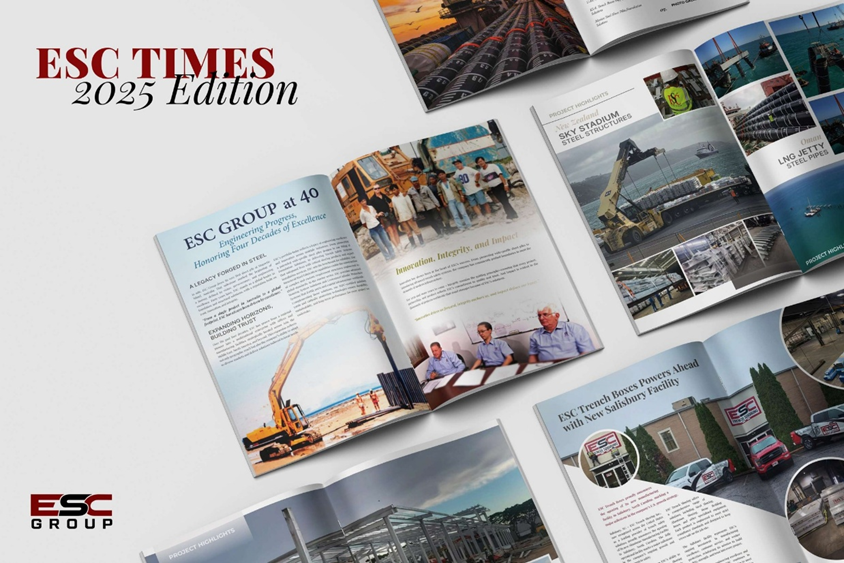Everything You Need to Know About Steel Sheet Piling
- ESC Steel Engineering Sdn Bhd

- Jan 13, 2022
- 3 min read
INTRODUCTION
A steel sheet pile is one of the most common construction materials generally used for earth-retaining walls. These earth-retaining structures may be permanent or temporary in nature, depending on the need of the project.

Projects such as ports and bridges may require the steel sheet piles to be installed permanently to prevent the backfill soil from collapsing during the structure’s design life.
On the other hand, building construction projects involving basements and/or deep excavations will require temporary excavation supports as the concrete basement walls are constructed.
WHAT ARE STEEL SHEET PILES USED FOR?
Steel sheet piles are slender structural members of varying lengths and cross sections, that are connected using interlocks at each end of the panel to make a continuous wall. Sheet piles are usually installed as part of an earth-retaining structure for slope protection, and excavation protection.
Marine structures such as jetties and quay walls use sheet pile walls to retain the backfill soil used for raising the finished floor level of the docking areas. Sheet piles also help in the mitigation of rapid groundwater seepage for these types of projects.
For most engineering projects, steel sheet piles are usually installed for falsework or temporary excavation protection applications. These include basement and tunnel construction.
The sheet piles are installed in combination with several components such as walers and struts, forming a braced cut/excavation.

Sheet pile walls may also be installed as part of a permanent earth-retaining structure such as a continuous wall to prevent the collapse of the structures above the soil that the sheet pile wall retains.
Another example of a permanent application of steel sheet pile walls are floodwall construction projects. Such scenarios often require for a cantilever sheet pile wall for a retained soil height of not higher than 6.00 meters, and an anchored sheet pile wall for higher retained heights.
STEEL SHEET PILE BENEFITS
The main advantage of steel sheet piles is its applicability for a wide variety of engineering projects.
In addition to that, steel sheet piles would potentially require less installation time as compared to reinforced concrete for retaining wall applications, where curing of the concrete would take several days prior to the next pouring activities.
Sheet piles are also generally lighter than reinforced concrete and can be transported more easily.
In addition, issues pertaining to deterioration of material quality during transport is kept to a minimum, unlike concrete, where there may be material quality issues occurring while it is being brought to the project site.
In terms of sustainability, steel sheet piles can be recovered from temporary excavation protection structures and can be utilized again for future construction projects. For permanent structures, steel sheet pile ways are also found to perform well when subjected to various loads. This is due to the high bending stresses it can withstand.
Furthermore, when steel sheet piles are installed with corrosion protection such as cathodic protection systems, material durability is improved, and the design life of the structure is prolonged.
This is evident for marine structures where steel has a high corrosion susceptibility due to the presence of seawater.
THE BEST STEEL SHEET PILING AROUND
By reading our guide, you are able to see the bigger picture and possess better understanding on the use of steel sheet piles in the construction industry. There are several advantages to undertaking projects with sheet steel piles as opposed to other construction materials.
Looking for a great solution to your own construction project? Contact ESC Steel Malaysia for innovative and cost-effective engineering and piling solutions.
You can browse through a wide array of ESC products and applications for temporary and/or permanent excavations.




